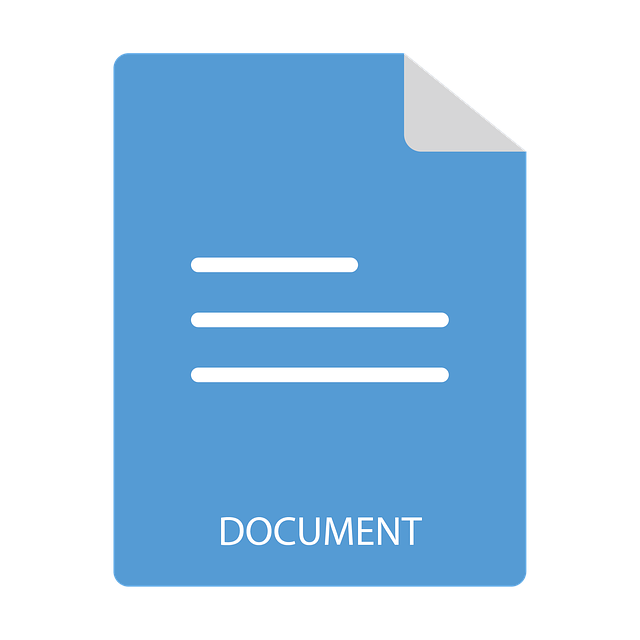UK Intellectual Property Documents translation services are essential for businesses expanding internationally, as they ensure the precise and legally accurate translation of patents, trademarks, design rights, and copyright certificates. These specialized services navigate the complexities of international intellectual property (IP) law, including compliance with local laws and adherence to standards set by regulations like the Paris Convention and TRIPS. They facilitate understanding and enforcement of IP rights across different jurisdictions by accurately conveying the intricate details of legal documents, thus safeguarding intellectual assets against unauthorized use in a global marketplace. Investing in these services is crucial for securing IP rights worldwide, deterring infringement, and protecting proprietary technologies and brand identity across cultures. This allows companies to defend their patents, trademarks, and copyrights in local courts, engage in trustworthy international licensing and sales agreements, and successfully expand into new markets with confidence in the legal validity of their UK intellectual property documents.
Navigating the intricate landscape of intellectual property (IP) requires precise and strategic actions, particularly when aiming for global protection. This article delves into the critical role of translating IP documents, with a special focus on UK Intellectual Property Documents, to ensure effective international recognition. We explore the unique aspects of UK IP documentation that necessitate expert translation services. From the nuances of patent applications and specifications to the intricacies of trademark registration and the complexities of copyright law, accurate translations are paramount for safeguarding your innovations across borders. Businesses and inventors will gain insights into leveraging multilingual IP portfolios for strategic advantage in the global market, accompanied by guidance on selecting reliable UK Intellectual Property Documents translation services to secure their intellectual assets worldwide.
- Understanding the Importance of Translating Intellectual Property Documents for Global Protection
- Overview of UK Intellectual Property Documentation and Its Uniqueness
- The Role of Professional Translation Services in IP Strategy
- Key Considerations When Translating Patent Applications and Specifications
- Navigating Trademark Registration: The Need for Accurate Translations
- The Complexities of Copyright Law and Its Translation Challenges
- Strategic Advantages of Multilingual IP Portfolios in a Global Market
- Choosing Reliable UK Intellectual Property Documents Translation Services for Effective International Protection
Understanding the Importance of Translating Intellectual Property Documents for Global Protection

When venturing into the global marketplace, it is imperative for businesses to secure their intellectual property (IP) rights across different jurisdictions. The UK Intellectual Property Documents translation services play a pivotal role in this process. These documents, which include patents, trademarks, and design registrations, form the bedrock of IP protection, ensuring that innovations and brand identities are legally recognized and safeguarded. Translating these records accurately into the languages relevant to the target markets is crucial for effective international IP enforcement. This is because legal systems and requirements vary significantly from one country to another; a patent that is valid in the UK may not enjoy the same protection in Germany, or vice versa. Therefore, businesses must engage with professional translation services specializing in UK Intellectual Property Documents to navigate these complexities successfully. Such services ensure that all nuances of the original documents are accurately conveyed, providing a solid foundation for international IP rights and facilitating compliance with foreign legal requirements. This meticulous approach to document translation is instrumental in avoiding disputes and ensuring that the intellectual assets are respected and protected globally.
Overview of UK Intellectual Property Documentation and Its Uniqueness

UK intellectual property documents are a testament to the robust legal framework governing inventions, designs, and creative works within the United Kingdom. These records, which include patents, design rights, trademarks, and copyright certificates, are meticulously prepared and must adhere to specific formalities to be enforceable. The UK Intellectual Property Office (UKIPO) oversees this process, ensuring that documentation is clear, precise, and complies with both national and international standards.
For entities seeking to protect their intellectual property (IP) internationally, translating UK intellectual property documents into the appropriate languages is paramount. This is where UK intellectual property document translation services excel, providing accurate and culturally relevant translations that stand up in a global context. These services are indispensable for businesses aiming to expand their reach, as they ensure that IP rights are recognized and respected across different jurisdictions. With expertise in navigating the nuances of both UK intellectual property law and international treaties such as the Paris Convention and the Agreement in relation to Trade-Related Aspects of Intellectual Property Rights (TRIPS), these translation services play a pivotal role in securing global protection for innovations and creative endeavors.
The Role of Professional Translation Services in IP Strategy

Navigating the complexities of intellectual property (IP) protection on a global scale necessitates meticulous attention to detail, particularly when it comes to translation. Professional translation services play a pivotal role in an effective IP strategy, especially for UK Intellectual Property Documents. These specialized services ensure that the nuances and legal specificities within IP documents are accurately conveyed across languages, thereby preserving the integrity and enforceability of the intellectual property rights. With expertise in industry-specific terminology and a deep understanding of legal language, these translation professionals can adapt documentation to comply with international standards while maintaining the original document’s intent and precision. By leveraging UK Intellectual Property Documents translation services, entities can confidently pursue international protection, secure in the knowledge that their IP assets are accurately represented in foreign jurisdictions. This not only facilitates a smoother path to global IP recognition but also safeguards against potential misinterpretations or legal pitfalls that could arise from translational discrepancies.
Key Considerations When Translating Patent Applications and Specifications

When embarking on the translation of intellectual property documents, such as patent applications and specifications, precision and expertise are paramount. UK Intellectual Property Documents translation services play a critical role in ensuring that the nuances and technicalities of the original text are accurately conveyed in the target language. This is essential for maintaining the integrity and enforceability of intellectual property rights across different jurisdictions. A translator specializing in IP documentation must not only possess a deep understanding of the source and target languages but also be well-versed in the technical field relevant to the patent. This technical knowledge enables them to accurately translate complex terminology, claims, and descriptions that form the cornerstone of patent protection.
The translation process for intellectual property documents is multifaceted and requires a comprehensive approach. UK Intellectual Property Documents translation services must adhere to stringent quality standards to ensure that the translated text does not deviate from the original in terms of meaning, legal implications, and technical accuracy. Collaboration with patent attorneys or IP experts is often necessary to navigate the complexities inherent in patents. This collaboration ensures that the nuances of patent law and the subtleties of the subject matter are accurately represented in the translation. By leveraging the expertise of specialized UK Intellectual Property Documents translation services, inventors and companies can safeguard their innovations with greater confidence, knowing that their patents have been translated accurately to meet international standards.
Navigating Trademark Registration: The Need for Accurate Translations

When a company or individual seeks to protect their intellectual property globally, navigating trademark registration across different jurisdictions is a critical step. The process involves filing and registering trademarks in each country where protection is desired. A key component of this process is the accurate translation of all relevant documents. This is because international trademark registrations are processed through individual countries’ intellectual property offices, which often require documentation to be submitted in the official language of that country. For instance, UK intellectual property documents must be translated into the appropriate language for registration within the European Union or other specific regions.
The importance of precise translations cannot be overstated. A poorly translated document could lead to misinterpretations, legal complications, and even rejection of the trademark application. This is where professional UK intellectual property documents translation services excel. These specialized services ensure that all nuances, technical terms, and contexts are accurately conveyed in the target language. By leveraging the expertise of professionals who understand both the source and target languages as well as the specific vocabulary of intellectual property law, businesses can navigate the complex waters of international trademark registration with greater confidence and security. This level of precision is essential for maintaining the integrity of the intellectual property and safeguarding against potential challenges that could arise due to language barriers.
The Complexities of Copyright Law and Its Translation Challenges

Navigating the complexities of copyright law presents a unique set of challenges, particularly when translating intellectual property documents for global protection. The intricacies of copyright law vary significantly across different jurisdictions, necessitating a nuanced understanding of local laws and regulations. For instance, UK Intellectual Property Documents translation services must be adept at converting legal content that aligns with the precise terminologies and stipulations applicable in the United Kingdom. This requires not only linguistic proficiency but also specialized knowledge in intellectual property rights to ensure accurate representation of the original text. The task is further compounded by the need to maintain the integrity of the document’s structure, context, and meaning across languages, which often have distinct legal frameworks governing copyright protection. As such, translation services specializing in UK Intellectual Property Documents must employ experts who are well-versed in both the source and target language legal systems, as well as the specific nuances of intellectual property law to provide effective translation that supports the enforcement of rights on a global scale.
Strategic Advantages of Multilingual IP Portfolios in a Global Market

In today’s globalized economy, businesses that operate internationally understand the strategic importance of securing intellectual property (IP) rights in multiple jurisdictions. Translating UK intellectual property documents into various languages is a critical step for businesses aiming to protect their innovations and creative works on a global scale. This translation process not only facilitates understanding among diverse stakeholders but also ensures compliance with local laws, which is crucial for effective IP enforcement across different regions. Companies that invest in multilingual IP portfolios gain a competitive edge by deterring potential infringers and by clearly communicating their ownership rights in various markets. Moreover, the ability to navigate legal frameworks in multiple languages allows for proactive defense strategies, mitigating risks associated with cross-border disputes. Utilizing specialized UK intellectual property documents translation services is an investment that pays off by opening up international commercial opportunities and safeguarding a company’s intangible assets against unauthorized use.
The strategic advantages of having multilingual IP portfolios are manifold. Firstly, it enables businesses to defend their patents, trademarks, and copyrights in the languages used by local courts and regulatory bodies, which can significantly impact the outcome of legal proceedings. Secondly, it enhances the ability to license and sell IP rights to international partners, as clear and accurate translations foster trust and facilitate smoother transactions. Furthermore, multilingual IP documentation is instrumental in global market expansion, as it allows for the precise articulation of a company’s proprietary technologies and brand identity across different cultures and languages. By leveraging UK intellectual property documents translation services, businesses can navigate the complexities of international IP laws with greater agility and confidence, thereby securing their position in the global marketplace.
Choosing Reliable UK Intellectual Property Documents Translation Services for Effective International Protection

When safeguarding intellectual property, the precise translation of UK intellectual property documents is paramount for effective international protection. The nuances of legal terminology and the intricacies of IP law vary from country to country, making it essential to choose a translation service that not only specializes in linguistic accuracy but also has a deep understanding of intellectual property rights and regulations globally. UK Intellectual Property Documents translation services can bridge this gap by providing precise translations that are legally sound and culturally appropriate for the target audience. These services ensure that the content is conveyed accurately, adhering to the legal standards required in each jurisdiction, thus facilitating comprehensive protection of your intellectual assets worldwide.
In selecting a UK Intellectual Property Documents translation service, consider a provider with a proven track record in handling sensitive and complex documents. Look for translators who are not only proficient in both the source and target languages but also have expertise in the field of intellectual property law. This combination of linguistic prowess and domain-specific knowledge is crucial for ensuring that your documents reflect the original intent and legal implications accurately. A reliable service will also offer additional support, such as certifying translations and providing attestation when necessary, to further enhance the credibility of your translated materials in the global marketplace.
In concluding, the imperative of translating intellectual property documents to secure global protection cannot be overstated. As businesses and inventors look to expand their reach beyond borders, the nuances of UK intellectual property documentation gain significant importance. The intricacies of patent applications, trademark registrations, and copyright laws necessitate professional translation services that can accurately convey the substance of these documents in a multitude of languages. By leveraging expert UK intellectual property documents translation services, entities can strategically enhance their IP portfolios, thereby unlocking new opportunities in international markets. This step is crucial for effective enforcement of rights and for navigating the diverse legal landscapes that govern intellectual property worldwide. businesses must prioritize precision and cultural relevance in these translations to avoid pitfalls and ensure the full scope of their innovations and brands are recognized and protected across the globe. With the right translation partners, companies can confidently assert their intellectual property rights on an international stage, paving the way for robust global IP strategies.



